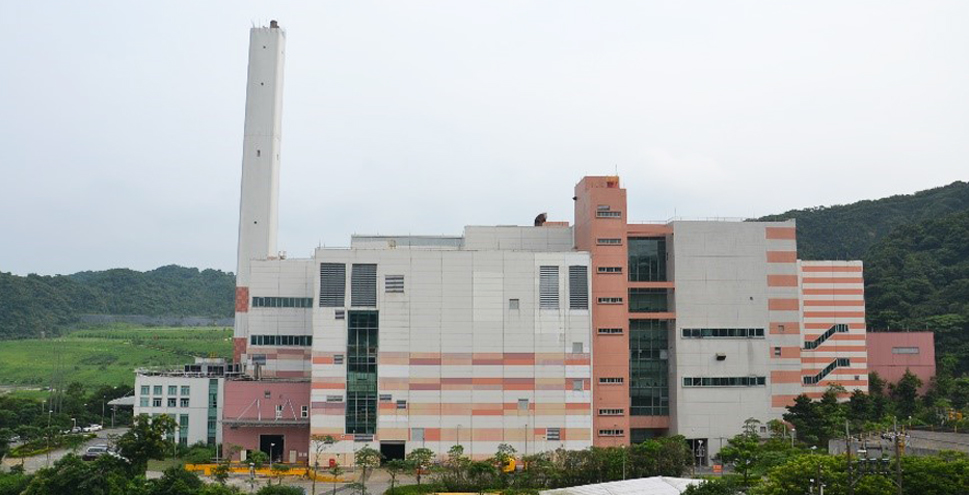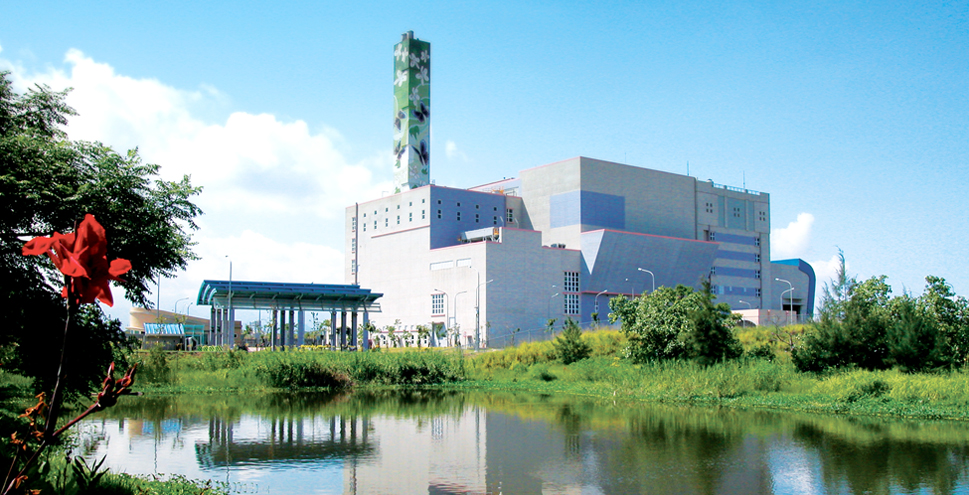Eco-friendly Innovation
綠色創新
Energy Recovery from Waste: ECOVE Continues to Lead in the Evaluation for Taiwan’s Incineration Plants O&M Services
ECOVE, a subsidiary of CTCI Group, is committed to the three core businesses of "incinerator and electromechanical maintenance, recycling and reuse, and renewable energies." Started as an operator of incineration plants, we have accumulated more than 20 years of experience in the field of incinerator and electromechanical maintenance. ECOVE was the first operator in Taiwan to expand the incineration business overseas and a pioneer in the supervision of the business of incineration plants in China. Through continuous refinement of technology, improvement of equipment and the introduction of the intelligent operational management system, we at ECOVE have enhanced the resource cycling efficiency™ and reduced environmental impacts. In recent years, we have actively participated in the upgrade and renovation of incineration plants and have successfully assisted incineration plants in completing performance enhancement, upgrade and renovation projects, thus extending their operating life and improving operational efficiency. Every year, the Environmental Protection Administration (EPA), Executive Yuan of Taiwan invites scholars and experts to inspect and evaluate incineration plants nationwide. Through this evaluation system, all plants are being urged to improve their operating efficiency with due care. The incineration plants operated by ECOVE have been evaluated in terms of operational efficiency, annual operational performances, and supervisory and nonperiodic inspections by the EPA. In 2021, ECOVE's Keelung plant was ranked first place in the country for its operational excellence, and the Taonan, Miaoli, Chengxi, Gangshan plants also came out at the top of the list. It is evident that ECOVE's quality of waste treatment in incineration plants, the performance of power generation by incineration, pollution prevention, and maintenance of equipment have not deteriorated with the increasing years of plants operation. Instead, we have improved the resource cycling performance and reduced environmental impacts through continuous technological refinement, equipment improvement, and the introduction of the smart management system and sound operational management system. All of the plants we provide O&M services have achieved good operational performances. According to the statistics of the World Bank, the total weight of garbage produced every day in the world is currently equivalent to the total weight of the Great Pyramid of Giza in Egypt. In Taiwan, although the country’s population has seen negative growth, the output of waste has increased rather than decreased due to changes in industrial structure and lifestyle. According to the statistics of the EPA, the production of general waste in Taiwan has reached a new high in 2020 again, with an average of 417 kg of waste being produced per person in one year. As the largest environmental resource management company in Taiwan, we at ECOVE are duty-bound to assist the government in promoting environmental protection, and has long been committed to integrating and applying the latest waste treatment and energy recovery technologies to convert the unavoidable and non-renewable waste to energy (which we refer to as Energy from Waste, EfW). In terms of energy conservation and carbon reduction and energy efficiency, which raise most concerns at home and abroad, the incineration plants operated by us have converted 2.54 million tons of waste into electricity in 2021, with a total power generation of about 1.45 billion kwh, able to replace 540,000 tons of fossil fuels (see Note 1). For Taiwan, a country that does not have sufficient natural resources and is extremely dependent on the importing of energy from foreign countries, EfW provides a stable and reliable alternative energy source, while effectively alleviating the increasingly problematic issue of waste disposal, and also allows cities become less dependent on fossil fuels and reduce 1.28 million tons of CO₂ emissions (see Note 1). Although carbon dioxide will still be produced when burning waste in the incineration process, we apply optimum efficiency of energy conversion to recover the energy in non-renewable waste, which is way better than dumping them in the landfill, which produced much more greenhouse gas emissions in the process of waste stabilizing than produced by incineration process (see Note 2). Circular economy is at the core of ECOVE's business operation. It is also the key to address the climate change crisis and move towards a future of zero carbon emission. We at ECOVE advocate the combination of business and vocation in order to make every one of our colleagues realize CSR for all and implementation of ESG in practice, with adherence to our vision of "Every Resource Counts" while continuously practicing sustainability in daily work. Looking forward to the future, we will continue optimizing our resource cycling efficiency™ through the integrated application of refined technology, practice global sustainability and realize our vision of being “The most reliable provider of industry-leading ‘resource cycling’ services.”

The Keelung plant has won first place in the inspection and evaluation of waste incineration plants
by the EPA for three consecutive years.

The Miaoli plant is surrounded by ecosystems with wetland and purple crow butterflies, as well as coastal plants.
It is the only incineration plant that coexists harmoniously with wetlands in Taiwan.
Note 1: According to the Energy Knowledge Database of the Bureau of Energy of the Ministry of Economic Affairs, each kWh of electricity generated from coal-burning requires 0.385 kg of coals, and will generate 0.882 kg of greenhouse gas emissions. https://km.twenergy.org.tw/ReadFile/?p=KLBase&n=20200907100212.pdf Note 2: According to the calculation of Intergovernmental Panel on Climate Change (IPCC) methodology, the greenhouse gas emissions per ton of waste buried is about twice the total amount of carbon emissions from waste incineration.


